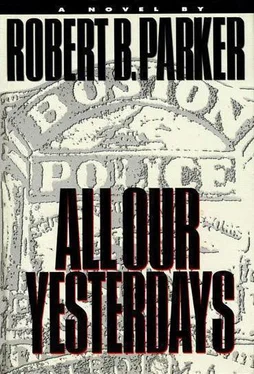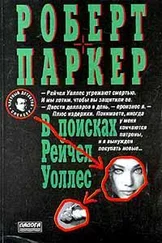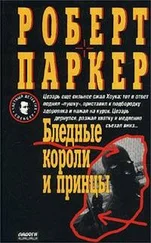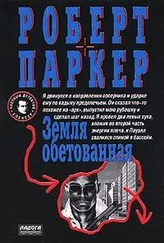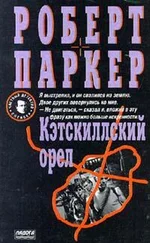“Most people love their children,” Flaherty said.
“I know, but for Gus, the kid is like all there is. Like if he does well it’s some sort of redemption for Gus.”
“Lot of weight for the kid to carry,” Flaherty said.
Mary Alice smiled.
“Why, Parnell, that’s damned near sensitive.”
“Sure. Why’d you hang me with him?”
“I didn’t hang you with him. You decided to follow my suggestion.”
“Whatever. What’s your deal?”
“I thought he might actually help. I thought it might get Gus energized. I thought it might help Gus and Chris get free of each other.”
“And?”
Mary Alice smiled again at Flaherty.
“We’re more alike than one would think,” she said.
Flaherty waited.
“And I just figured if things happened that other things might happen. Gus might make some changes.”
“Like dumping the old lady?”
“You never know,” Mary Alice said, “once things start happening, there’s a momentum...”
“But he hasn’t,” Flaherty said.
“Not yet.”
“And you’re still fucking him in case he might?”
“And because I like to,” Mary Alice said.
“And you’re fucking me because you know that the whole idea may go sour and you want an edge when I start handing out blame,” Flaherty said.
“And because I like to,” Mary Alice said.
Flaherty put his hands in his hip pockets and stared at her for a moment, then he turned and went back and gazed out his window at Quincy Market again. He laughed.
“You are a liberated broad, Mary Alice. I’ll give you that.”
Below him in the Marketplace the last summer tourists milled slowly about in the Market, eating at the food stalls, buying Boston T-shirts and dark blue plastic-mesh Red Sox hats. There were jugglers there and strolling musicians, and people who sold little plastic balls with a winter scene inside. There was fried dough, and oysters, and kielbasa, and pizza, sweet and sour pork with pineapples in it, and spinach pies, and beer and doughnuts, and lobster rolls and apple pie and cheap wine and baked beans and bagels. There were also surely pickpockets and mountebanks and men who liked to grope women in a crowd.
He loved all of it.
“I’m going to put Chris on the murder of that girl,” Flaherty said to Mary Alice, with his back to her, still staring down at the Market. “Before I blame him for the crime wave, and fire him.”
“That’s the smart move,” Mary Alice said.
At six-fifteen in the morning the Greyhound Bus terminal, hunched among the taller buildings off Park Square, was nearly empty. Tommy, who was there wearing sunglasses, a light tan raincoat with the collar up, and a Snowy River slouch hat that he’d bought at Bean’s, went to the Burger King in the terminal and bought a cup of black coffee. He sipped it as he stood near the entrance, glancing occasionally at his watch, as if he were waiting for a bus. He let his eyes drift around the terminal, as he had yesterday. As he would tomorrow... until he found her.
A fat, middle-aged black woman in a too-small flowered blouse and too-tight stone-washed jeans pushed a broom past him. She paid him no attention, moving past him silently on a pair of Reebok running shoes with a cutaway area on her right shoe giving ease to a sore toe. One ticket window was open, but there was no one behind it. The smell of the terminal always reminded him a little of the smell of the monkey house at the Forest Park Zoo in Springfield, where once he had gone with his aunt.
He went to a newspaper rack, put in a quarter, and bought a copy of the Boston Herald . He took the tabloid to a bench, and sat in the corner of it nearest the door. He put his coffee down on the bench beside him and began to leaf through the paper. The contents didn’t register. It was merely something to do, while he waited. He felt the bottomless feeling in his stomach. His throat was tight. His face felt hot and there was a trembling feeling along the backs of his arms down to his hands.
A panhandler in a filthy maroon parka came by and asked for change. The fur trim on the parka hood was matted into a nearly colorless fringe. Tommy shook his head, and the panhandler muttered, “Have a nice day,” and moved away.
A bus arrived from somewhere and three people got off and came through the terminal carrying their cheap luggage. None of them was She. He waited, turning the meaningless pages slowly, conscious of his breathing, of how shallow it was; hearing his breath go flatly in and out.
Through the door from the St. James Avenue side of the terminal came a young girl wearing black lipstick and a lot of eye shadow. She had on a shiny crimson baseball jacket, a short denim skirt, and cowboy boots. Her hair was tinted maroon. She appeared to be around eleven years old. She was carrying no luggage, not even a purse, and she looked around the terminal as if she were frightened.
Tommy felt as if his skin were stretched to its limit, as if it might give way, and his self would scatter.
He stood slowly, and walked toward the girl.
“Hi,” he said.
She looked at him, her eyes small, and fearful, and appraising.
“Are you alone?” he said.
“Yeah,” she said.
“Could I buy you some breakfast?”
The girl smiled. Familiar ground.
“Sure,” she said. “Why not?
They gathered again on the day after Labor Day, with a gray rain falling on Quincy Market outside the mayor’s window. Gus stood in back of the couch; his raincoat was unbuttoned, his hands in his hip pockets. Sullivan, the police commissioner, was there, and Robinson, the DA, wearing a polka-dot bow tie. Fiora Gardello, Robinson’s chief prosecutor, stood by the window, looking at the rain. Chris sat on the couch beside Mary Alice.
Flaherty stood behind his desk with his coat off. He wore a white shirt with French cuffs, and red suspenders. His pinstriped suit jacket hung on the back of his chair. There were copies of the Globe and the Herald on his desk, as well as neatly typed transcripts of television news programs and radio talk shows. The Globe headline read, FEAR GRIPS HUB. The Herald said, MORE MURDER.
Without preamble, Flaherty picked up one of the transcripts and began to read:
“‘Death played a doubleheader yesterday in the Athens of America.’”
Kendall Robinson said, “Parnell, we’ve all heard this.”
“Shut up,” Flaherty said. “‘The slaying, gangland style, of thirty-eight-year-old Marty Kiley in City Square, and the apparently serial murder of an as yet maica Pond... blah, blah, blah... the failure of the police, and of the mayor’s Ivy League special prosecutor to stem the blood-dimmed tide underscores the unraveling of our civic fabric... blah blah.’”
Flaherty looked slowly around the room, still holding the transcript.
“That,” he said, “is from a Channel Three editorial that ran yesterday at six and eleven. It’s restrained. The Herald guy says the special prosecutor was imported from the Planet Cambridge and promised a lifetime supply of Brie. The Johnny Rollins show this morning invites callers to discuss the fact that three children have been shot this summer.”
“Three white children,” Gus said.
“Don’t get starry eyed on me, Gus,” Flaherty said. “The electorate doesn’t give a fuck if the coons shoot each other.” He looked around the room. “Anybody got anything more than what’s in the media?”
“Girl’s name is Trudy Boudreau,” Gus said. “Eleven years old, a chronic runaway from Lewiston, Maine. She took a bus to Boston and apparently got out at the Greyhound station in Park Square. Lewis-ton cops say she ran away a lot because her old man probably molested her.”
Читать дальше
